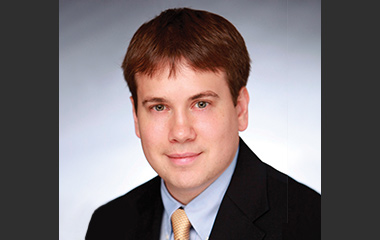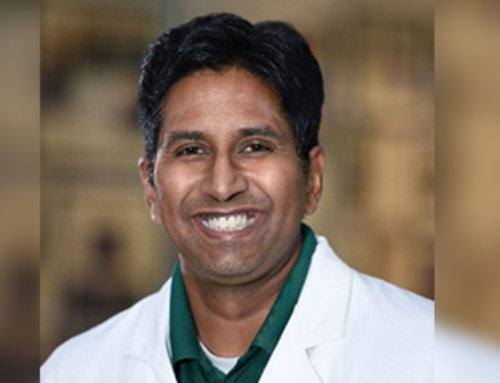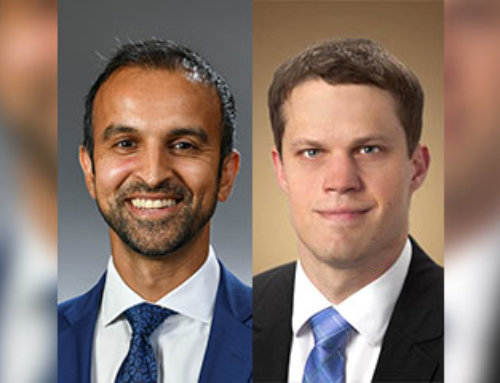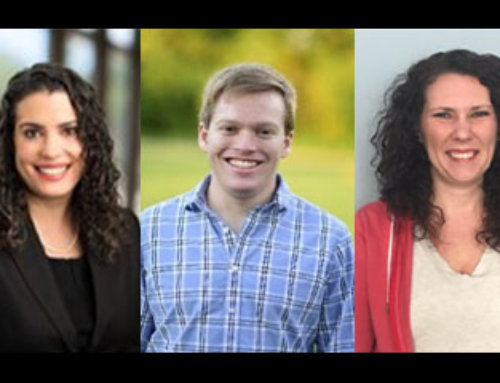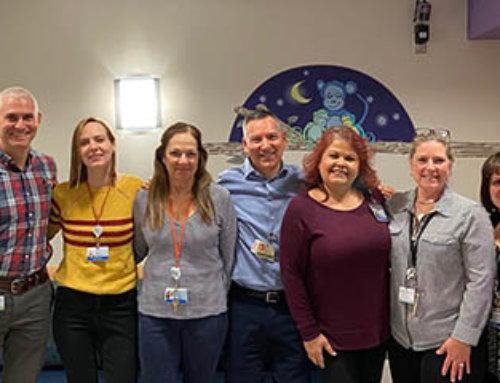David T. Plante, MD, PhD, received three separate AASM Foundation awards that supported his sleep research career trajectory from his time as a trainee to now being a successful independent clinician-scientist. Read more about how his AASM Foundation awards propelled his career.
David T. Plante, MD, PhD, is an Assistant Professor of Psychiatry at the University of Wisconsin-Madison. He has a highly productive research lab, which focuses on hypersomnolence presenting with excessive daytime sleepiness and/or total sleep time, as well as novel diagnostic and therapeutic strategies in these disorders.
Dr. Plante received multiple AASM Foundation awards, including the 2009 Physician Scientist Training Award for his project, “A 1H-MRS Study of Altered Regional Brain GABA in Primary Insomnia.”
“The awards I have received from the AASM Foundation have been instrumental to my clinical and research trajectory,” said Dr. Plante. “The Physician Scientist Training Award was the first major research grant I obtained and came prior to my faculty position.”
The award allowed him to dedicate a year following his clinical sleep fellowship at Brigham and Women’s Hospital to more fully immerse himself in sleep research as he transitioned from his fellowship training to becoming a faculty member. The award helped him “gain a broader appreciation of what an integrated clinical and research career would entail.”
Dr. Plante adds, “It also helped me appreciate that to move onto the next stage in my career, I would need to develop clinical and research niches that both served a larger need for the field, as well as kept me intellectually engaged and challenged.”
In 2010, he joined the University of Wisconsin-Madison as an Assistant Professor. He then received a 2012 ABSM Junior Faculty Research Award to conduct a high-density EEG investigation of hypersomnia in major depressive disorder. Funded by an endowment from the American Board of Sleep Medicine, the ABSM Junior Faculty Research Award provides research training for young faculty members who wish to pursue careers as physician scientists in sleep medicine.
“This award, when leveraged with a K-award I received from NIH, helped me complete prospective studies of hypersomnolence in major depressive disorder, with novel findings that challenge our current nosological classification and conceptualization of sleepiness in mood disorders,” said Dr. Plante.
Most recently, Dr. Plante received a 2016 Strategic Research Award which allowed him to further pursue his passion for hypersomnolence research with the project, “A Multidimensional Assessment to Improve the Evaluation and Treatment of Hypersomnolence.”
The most important finding from this project was that the multiple sleep latency test (MSLT), only identified a relatively small fraction of persons with hypersomnolence complaints. Using additional objective measures, such as extended sleep recordings, infrared pupillometry, and psychomotor vigilance testing, dramatically increased the proportion of persons identified as hypersomnolent by over two-fold.
Dr. Plante suggests that in the study of unexplained hypersomnolence, a crucial next step is to more closely map hypersomnolence phenotypes to their underlying mechanisms and brain processes. He believes this will likely be best accomplished using transdiagnostic approaches, in which we look beyond our current nosology and consider hypersomnolence traits as phenomena that cut across traditional diagnostic boundaries.
“It is my sincere hope that my research has impacted the field by identifying potential blind spots we may have in the diagnosis and conceptualization of disorders of unexplained hypersomnolence,” said Dr. Plante. “I also recognize that research is a collaborative process and hope my work spurs discussion within the field that will ultimately advance the science practice of sleep medicine.”
Written by Corinne Lederhouse
AASM Communications


